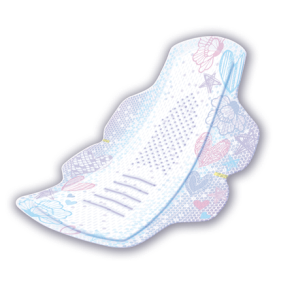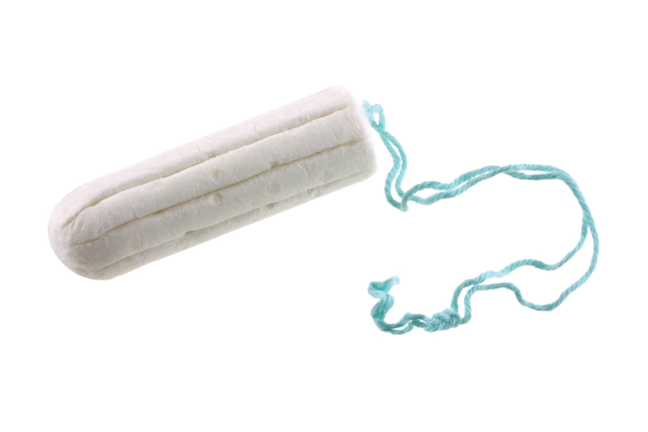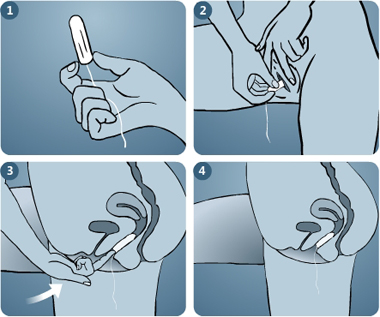Teen Health
- Introduction
- Puberty
- Periods (Menstruation)
- Mental Health
- Bullying
- Alcohol, Smoking and Drug Use
- Helplines / Useful Information
Introduction

Read this article to learn more about your health as a teenager and to better understand the changes that you are going through.
Right to Care
- You have a right to understand your own health and to make informed decisions about your own body.
- All medical staff should communicate with you during your appointment.
- You have the right to an interpreter and to ask that they interpreter be the same gender as you.
- If you don’t know what is happening to you, you have a right to ask them to stop and explain what is happening.
- You also have a right to say ‘no’ or to ask for more information before consenting to a treatment.
Becoming a Teenager
- Your body will change physically and emotionally as you become a teenager. This process of change is called puberty.
- Puberty happens at different times and in different ways for boys and for girls.
Information for this article was sourced from: nhs.uk, 1800 RESPECT, Victorian Centres Against Sexual Assault, Sexuality in teenagers, Youth Sexuality, ygender, Beyond Blue , bullyingnoway.gov.au , How to reverse the effects of smoking, Raising Children
Puberty

Puberty happens when your body releases hormones that cause physical and emotional changes. Hormones control things in our body, for example our hunger or emotions.
These changes may include:
- Growing taller
- Growing hair in your armpits, on your legs and on your pubic area (where your genitals are)
- Pimples or acne
- Having romantic or sexual feelings towards other people
- Feeling moody, sad or tired for no reason
Periods (Menstruation)

A period occurs when a girl starts bleeding from her vagina for about 4-7 days each month. This bleeding is usually less than 16 teaspoons (80ml)
Once you start puberty you will get your period each month until menopause unless you are pregnant or using a form of contraception that stops your period (e.g. some IUDs). A woman usually enters menopause in her late 40s/50s and marks a new stage in her life where she stops her periods and ability to have children.
The period is a normal part of puberty for girls.
Menstrual Cycle and Period Problems
What happens to my Body when I have my Period?
The uterus is the reproductive organ that holds the baby and helps it to grow when a woman is pregnant.
Each month there are hormones that make the lining of the uterus (also known as the womb) thicker. These hormones also release an egg from either the left or right ovary (this is known as ovulation).
Women have two ovaries, which are the organs that produce eggs. If the egg that is released does not come into contact with a man’s sperm (e.g. through sexual intercourse) then you cannot become pregnant. Your period will start approximately 2 weeks after the egg is released.
Period Symptoms
- Cramps or pains in the lower part of your tummy
- Bloating or swelling in your tummy
- Constipation before your period starts
- Diarrhoea when your period starts
- Increase in pimples
- Tiredness
- Moodiness (feelings grumpy, sad, angry etc.)
These symptoms are temporary and will pass. Some girls/women experience these worse or for longer than others.
Pads
A pad is a rectangular piece of material that you can attach to the inside of your underwear. It absorbs the blood as it flows out of the vagina.
Some pads have extra material on the side (called wings) that fold over the edges of your underwear to help hold the pad in place and prevent leakage.
Some girls have periods with heavier bleeding/flow, whereas some girls only experience light bleeding. Pads come in different thicknesses to suit heavier and lighter flows.
Peel the plastic strip underneath the pad and then press it onto the inside of your underwear to attach it.
Once you have removed the pad after going to the toilet, wrap it in toilet paper and throw it into a rubbish bin (or sanitary bin if there is one located in the bathroom). Do not flush it down the toilet.
You should change your pad every 3 – 4 hours to prevent infection and for hygiene.

Tampons
A tampon is a small cotton device that soaks up blood from inside the vagina.

Before inserting a tampon remember to wash your hands.
Follow the instructions that come with the tampon packet and make sure you relax as you insert the tampon.
Some tampons come with an applicator that guides the tampon into the vagina. Other tampons are inserted with your fingers. Tampons have a string attached to the end that stays outside of the vagina. This string is used to remove the tampon.
A tampon should be changed every 4 – 6 hours.
Once you have removed the tampon after going to the toilet, wrap it in toilet paper and throw it into a rubbish bin (or sanitary bin if there is one located in the bathroom). Do not flush it down the toilet.
If you cannot find the string, wash your hands and gently use your fingers to locate it within the vagina (don’t worry, a tampon cannot get lost because your cervix will block it from travelling any further).

Video: How to Use Tampons for Beginners
Menstrual Cups
A menstrual cup is a bell-shaped, silicon cap that can you can insert into your vagina during your period. The cup catches the blood before it flows out of the vagina.

To insert, fold is in half like the picture below and insert. If inserted properly the menstrual cup should not be uncomfortable and will not fall out.
Follow the instructions here if you are unsure
The cup can be left inside between 6-12 hours depending on how much you bleed. Most brands recommend emptying and cleaning every 6 hours to reduce the chance of infection (see TSS section below)
You need to have access to soap and water so that you can wash your hands before you remove and reinsert the cup.
At the end of your cycle, you can wash your cup with warm water and an oil free, unscented soap. If you want to boil it, you can do so for 5-10 minutes but be careful to let the cup get burned as this will make it unusable in the future. With good care, your cup can last up to 10 years.
Video: How to insert and remove the DivaCup
Toxic Shock Syndrome (TSS):
Toxic Shock Syndrome happens when bacteria in the vagina become poisonous.
Symptoms include:
- High temperature
- Low blood pressure
- Rash that looks like sunburn
- Vomiting or diarrhoea
- Muscle aches or weakness
- Bright red colouring of the eyes, mouth, throat and vagina
- Headache, confusion, disorientation or seizures
- Pain in your tummy and back (near your kidneys)
If you notice any of these symptoms contact your doctor immediately.
Mental Health

If you think you have a mental illness, talk to your doctor. If your doctor thinks it’s necessary, they will refer you on to a mental health service that specialises in teenagers. If you need to speak to someone about mental health issues, you can:
- Talk to someone that you trust, for example a friend or family member
- Talk to your doctor
- Call Life Line on 13 11 14
- call Headspace on 1800 650 890 or go on the website to live chat
Depression
1 in 6 women and 1 in 8 men will experience some level of depression at some point in their lives.
Depression happens when you feel sad, lonely and sometimes hopeless for a long time (usually more than 2 weeks). Some people have trouble doing everyday things like getting out of bed, working or socialising with family and friends. Other people may force themselves to be very busy and socialise a lot but still have a constant feeling of sadness or being alone.
Many men experience this for years without getting help. Women who are pregnant or have had a baby recently may also experience depression and not ask for help.
Some people feel better with therapy or changes to diet and exercising more. Other people might need medication for some time.
Anxiety
1 in 3 women and 1 in 5 men will experience anxiety at some point in their lives.
Anxiety happens when you have ongoing feelings of worry or stress that won’t go away. Sometimes these feelings get worse around certain stressors. Stressors are things or situations that make stress you, for example job interviews, paying bills, moving, relationship problems.
Some people feel better with therapy or changes to diet and exercising more. Other people might need medication for some time.
What support is there for people living with mental illness?
In Australia, it is not a crime to experience mental health issues. You have a right to ask for help and to be treated with dignity and respect. Asking for help will not affect your visa status.
There are many services for people who need help with their mental health. In Australia, people with mental health concerns may be treated in the community or sometimes in hospital, but not in institutions.
If you are worried about your mental health, you should contact your doctor or go to your local community health centre. If you need urgent help, contact the mental health team at your nearest hospital or contact your doctor.
If you are worried that you might have anxiety or depression you can fill in this anonymous checklist from Beyond Blue.
Learn more here:
Bullying

Bullying is when someone intimidates someone else repeatedly. This intimidation can be verbal, physical or social.
Bullying can affect how a person feels physically and mentally.
It can involve a single person or a group of people. It can happen in person or online. Bullying is not always obvious.
Cyber-Bullying
Cyber-Bullying is bullying that happens through the use of technology (e.g. when someone uses the internet, a mobile phone or a camera to hurt or embarrass someone else).
Cyber-Bullying includes:
- Text messages or e-mails that offend a person
- Images or videos that hurt a person
- Embarrassing someone online
- Mean or unkind online chat messages
Learn more here:
Alcohol, Smoking and Drug Use
Alcohol
In Australia, teenagers under the age of 18 cannot drink alcohol.
Binge drinking means that you drink a lot of alcohol in a short space of time to get drunk. This type of drinking can cause accidents, blackouts, confusion and other health problems and is common amongst some teenage groups.
Smoking
In Australia, teenagers under the age of 18 cannot smoke cigarettes.
Smoking cigarettes can cause many health problems for you and the people you smoke around.
If you want to quit smoking call QUITLINE on 13 7848.
Drugs
Drugs are chemicals that can change the way you feel or how your body works.
Drugs can be illegal or legal. Legal drugs can be bought at chemists and are used to improve your health. Your doctor will tell you when and how to take these drugs. It is important to follow your doctor’s instructions and take the right amount.
Illegal drugs include cannabis, amphetamines, ecstasy, cocaine and heroin. You can’t buy these drugs in a store or chemist. These drugs are addictive. When something is addictive, you can’t control the need to have it. Illegal drugs can cause problems in your relationships, maintaining a job and saving money. Illegal drugs can also affect your physical, emotional and mental health.
If you think you have a problem with drug use, speak to your doctor so that they can help you.
Mental Health Concerns
It is hard to talk to other people about the way you feel when you have negative or frightening thoughts. But getting help is essential to getting better.
Sometimes it may feel like taking illegal drugs or drinking alcohol will help to feel better but in the long term, it will only make things worse.
People with severe depression, especially men, are at a high risk of suicide especially if you have experienced traumatic events in your life or been discriminated against.
There are services that are specific for men who have experienced torture and trauma, both in Australia and overseas. There are also services available if you have been bullied or targeted due to your sexuality, disability or mental health.
You have a right to ask for help and to feel heard, safe and respected.
Help is out there and it’s OK to ask for it.
Don’t feel you have to deal with your worries alone.
Learn more here:
Here are some Helplines
| Service | Phone Number | Website |
|---|---|---|
| Lifeline – 24 Hour Helpline | www.lifeline.org.au | 13 1114 |
| Kids Helpline – 24 Hour Helpline | www.kidshelp.com.au | 1800 55 1800 |
| Men’s Helpline Australia – 24 Hour Crisis Line | www.menslineaus.org.au | 1300 789 978 |
| ACT Companion House – Assisting Survivors of Torture and Trauma | www.companionhouse.org.au | 02 6251 4550 |
| NSW Service for the Treatment and Rehabilitation of Torture and Trauma Survivors (STARTTS) | www.startts.org.au | 02 9794 1900 |
| QLD Queensland Program of Assistance to Survivors of Torture and Trauma (QPASTT) | www.qpastt.org.au | 07 3391 6677 |
| SA Survivors of Torture and Trauma Assistance and Rehabilitation Service (STTARS) | www.sttars.org.au | 08 8346 5433 |
| TAS Phoenix Centre – support Service for Survivors of Torture and Trauma | www.mrchobart.org.au | 03 6234 9138 |
| VIC Foundation House – Victorian Foundation for Survivors of Torture (‘Foundation House’) | www.foundationhouse.com.au | 03 9388 0022 |
| WA Association for Services to Torture and Trauma Survivors (ASeTTS) | http://www.asetts.org.au | 08 9227 2700 |
Useful Links
Periods
Sexuality
- Sexuality in teenagers
- Youth sexuality
- LGBTQI youth
- Transgender resources and support specific to refugees
- LGBTQ support group
- How to negotiate sex
- Legislation and legal support
- Legal aid
Mental Health
Alcohol, smoking and drug use
- Video: Teenage drinking and alcohol use: what to do
- Confidential alcohol & drug counselling and referral in Victoria
- How to tell if you have a drug problem
- Teens alcohol and other drugs: services, resources and links
Depression
- What causes anxiety and depression in men?
- Beyond Blue – Depression signs and symptoms
- LGBTQI and mental health
- Video: Talking about teenage depression
Anxiety
- Choosing mental health services for teenagers
- Introduction: Teenage mental health
- Learn more about doctors and teenage mental health
Trauma
Last reviewed: Jun 2022
